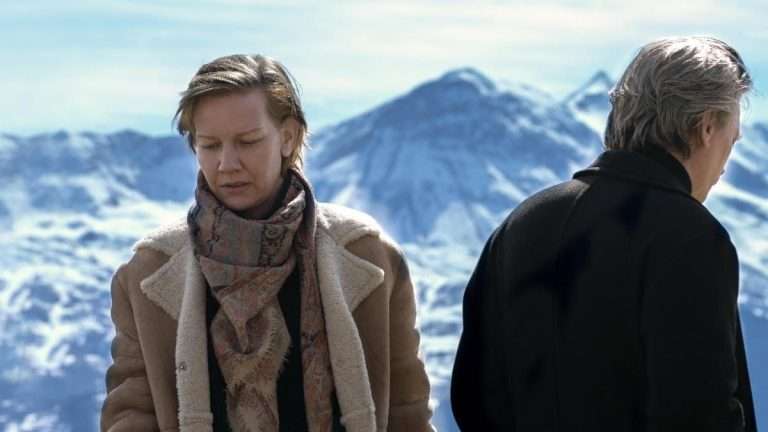The dilemma of reconstructing or producing personal experiences for the screen is disquieting. On the one hand, art having more personal touches is a perfect mechanism for emotional resonance, not just because the artists themselves are essentially exorcising or describing their demons but also because it becomes easier to associate once the viewers attach themselves to the common kernel that is differentiated by only circumstances of locality or geography.
The inverse of the above is a movie becoming too personal, thereby running the risk of being too obtuse or feeling indulgent. It is risky, especially when a movie describes a human experience by associating it with the fractures and divisions of a country. Formulating that experience via ground reality could either be harrowing or even mundane.
“When the Phone Rang” is director Iva Radivojevic’s depiction via reconstruction and recollection of her personal experiences leaving the crisis-stricken Yugoslavia of the 1990s, once the news of the disappearance of her father becomes the inciting incident for their family to pack their suitcases and move away. The breakup of Yugoslavia into six independent countries is almost akin to dislocation; the phone call becomes a recurring motif of an episodic unfurling of memory, as is the line oft-repeated, “The country still existed.”.
And truly, to imagine one’s country not existing and the streets and the locale, as well as the people you once grew up with, becoming essentially citizens of different nations, is discombobulating. Geographical divisions as a result of geopolitical conflicts are severely dissociated from the actual dislocation of civilians in any form of partition, as the stories on the ground become so much less a story about reconciling and understanding the politics of the division and more about survival stories and just trying to exist as newer circumstances tend to overwhelm you, with families being divided due to the lines drawn on the maps.
Radivojevic, however, goes internal, choosing to mine through memories and reconstruct them in the fictional narrative of Lana, choosing to describe the mundanity of her existence, her friendship with the kids in her tenements, a frayed relationship with her father, and her association with the music of that era. But somehow, Radivojevic goes so far inward in reconstruction that she doesn’t effectively recontextualize the situation in the context of the political with the personal. It becomes more like floating through strands of memory, upended by the telephone call, which triggers a newer memory. It’s a fascinating screenplay structure, and theoretically, it works by highlighting the human experience amidst the mundanity.

But again, one does ask: how much mundane is too much? In the context of “When the Phone Rang,” it does threaten to be unengaging, especially in moments of Lana and her friend following the adults to their flats or them choosing to don punk-rock hairstyles. Those could be construed as joyful memories of a bygone era. But they are also all delivered with a flat and somber tonality that never wavers, especially hampered by a voiceover describing the emotions felt by the characters.
The voiceover and the acting, however, become synchronized in rare moments—during moments when the voiceover describes the inevitable death of a character, contrasted sharply with scenes of Lena enjoying the music of EKV (Ekatarina Velika) with that same individual. Or it is when Lana realizes that one interaction with her best friend might be the final one. The voiceover describing the two girls finally realizing that they are in love is complemented by the performance of the lead, Natalija Ilincic, with a silent stare, only enhanced by her eyes simmering with tears, emotion threatening to overflow.
Or it’s in the moments where Radivojevic decides to talk about the aftermath of the conflict, resulting in empty cities, vacant buildings, and sneakers being stolen off people’s feet at knifepoint. These moments are highly impactful in situating the events during an era without pushing the boundaries of the character’s limited circle.
I would have liked to witness more of that final storytelling methodology, perhaps through Lana’s conversations with the adults in the house or newsreels. While I understand and even appreciate the nostalgic trip toward a world that doesn’t exist anymore, the emotional devastation of that phenomenon never really registers. It oddly feels like a traditional look back at the 90s, at how punk and globalization are slowly trickling inward.
But the movie isn’t interested in describing over such a macro scale, and yet the choice to focus on so many personal events oddly left me at a distance—the rare moments of events being so specific and delivered with such a dry cadence and style that it ceases to be relatable for me. It’s a shame because the film could never be accused of being conventional, lacking tenderness, or even a lackluster visual palette. The grain especially contributes greatly to situating the narrative at that specific period. It’s just a swing that doesn’t connect with me.







![The Father [2020] Review – A Masterclass of The Show Don’t Tell Storytelling Method](https://79468c92.delivery.rocketcdn.me/wp-content/uploads/2021/04/The-Father-1-highonfilms-768x432.jpg)

